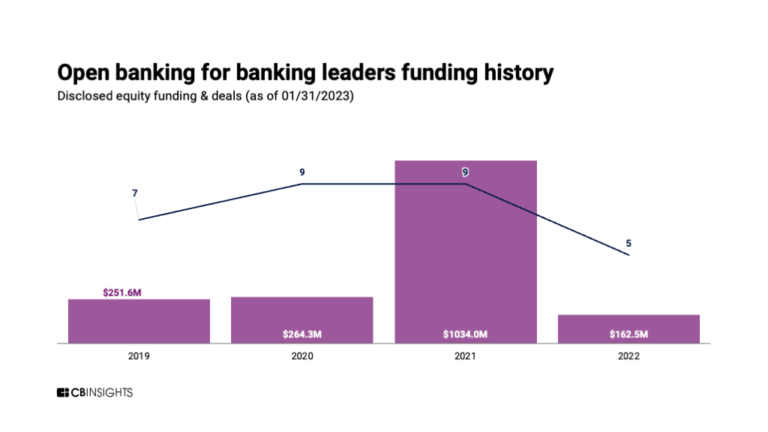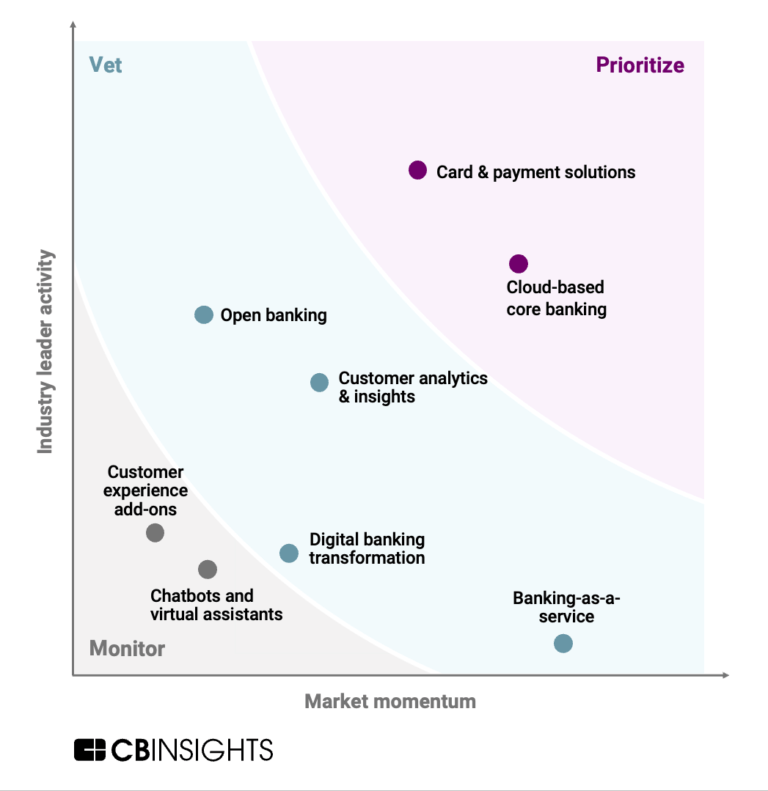
TrueLayer
Founded Year
2016Stage
Series E - II | AliveTotal Raised
$321.8MValuation
$0000Last Raised
$50M | 1 mo agoRevenue
$0000Mosaic Score The Mosaic Score is an algorithm that measures the overall financial health and market potential of private companies.
+77 points in the past 30 days
About TrueLayer
TrueLayer is an open banking platform that specializes in the financial services industry. The company offers a suite of products that enable instant bank payments, fast and verified payouts, streamlined user onboarding, and variable recurring payments, all designed to facilitate safer and more efficient financial transactions. TrueLayer primarily serves sectors such as e-commerce, gaming, financial services, travel, and cryptocurrency markets. TrueLayer was formerly known as Finport. It was founded in 2016 and is based in London, United Kingdom.
Loading...
ESPs containing TrueLayer
The ESP matrix leverages data and analyst insight to identify and rank leading companies in a given technology landscape.
The identity verification market focuses on providing technologies and processes to verify the identities of individuals in both online and offline interactions, as well as prevent identity fraud. These solutions cater to a wide variety of industries and include new account and also synthetic fraud prevention, which involve bad actors stealing all or part of a person’s information to open new acco…
TrueLayer named as Challenger among 15 other companies, including SAP, Onfido, and Ping Identity.
TrueLayer's Products & Differentiators
Data API
Connect an app to any bank account: delivering real-time access to account, balance, transaction, and identity data using open banking AIS.
Loading...
Research containing TrueLayer
Get data-driven expert analysis from the CB Insights Intelligence Unit.
CB Insights Intelligence Analysts have mentioned TrueLayer in 6 CB Insights research briefs, most recently on May 8, 2024.
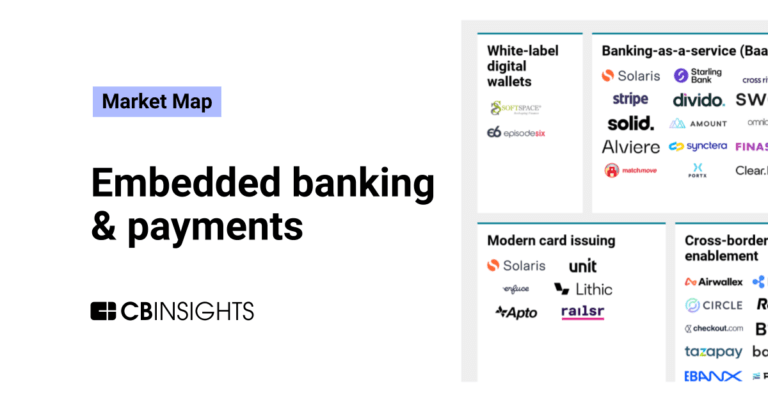
May 8, 2024
The embedded banking & payments market map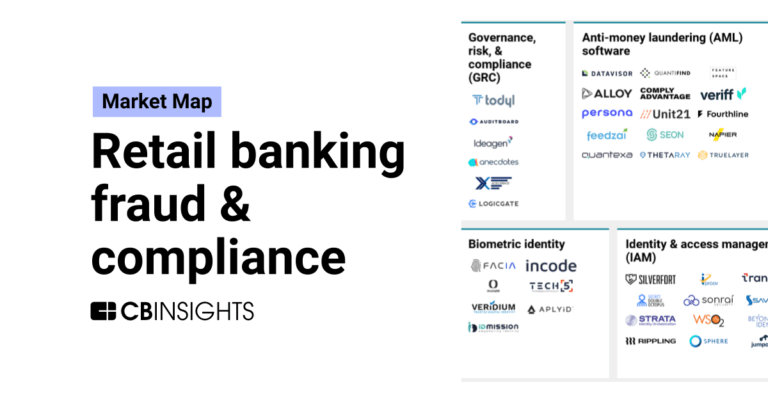
Mar 14, 2024
The retail banking fraud & compliance market map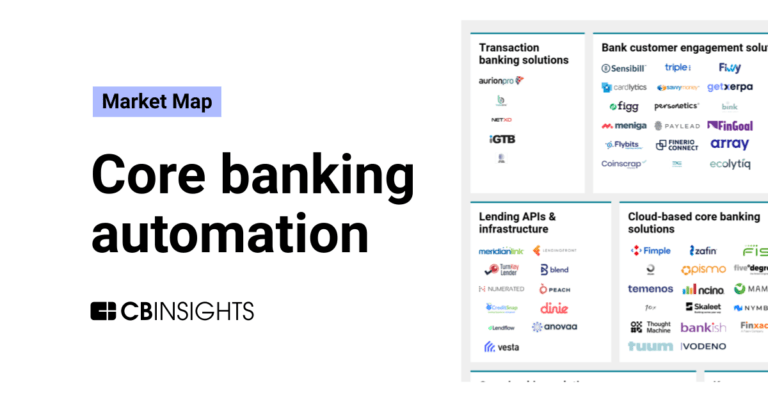
Jan 4, 2024
The core banking automation market map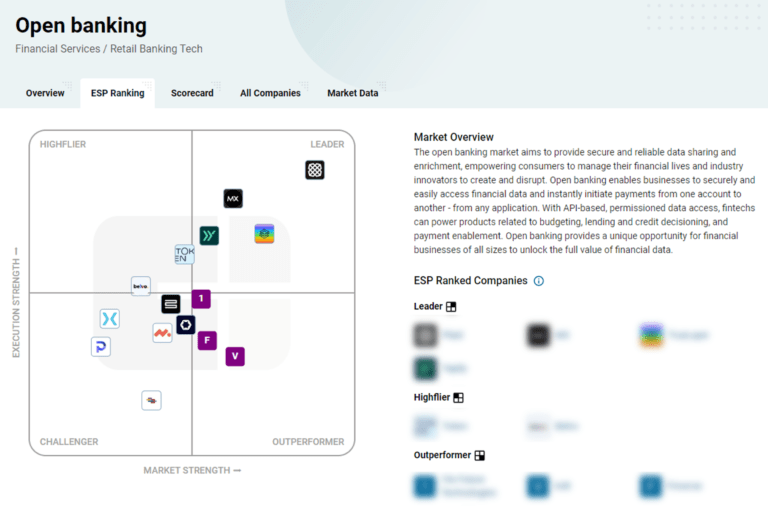
Expert Collections containing TrueLayer
Expert Collections are analyst-curated lists that highlight the companies you need to know in the most important technology spaces.
TrueLayer is included in 9 Expert Collections, including Unicorns- Billion Dollar Startups.
Unicorns- Billion Dollar Startups
1,249 items
Regtech
1,453 items
Technology that addresses regulatory challenges and facilitates the delivery of compliance requirements. Regulatory technology helps companies and regulators address challenges ranging from compliance (e.g. AML/KYC) automation and improved risk management.
Blockchain
8,779 items
Companies in this collection build, apply, and analyze blockchain and cryptocurrency technologies for business or consumer use cases. Categories include blockchain infrastructure and development, crypto & DeFi, Web3, NFTs, gaming, supply chain, enterprise blockchain, and more.
Digital Lending
2,374 items
This collection contains companies that provide alternative means for obtaining a loan for personal or business use and companies that provide software to lenders for the application, underwriting, funding or loan collection process.
Fintech 100
999 items
250 of the most promising private companies applying a mix of software and technology to transform the financial services industry.
Fintech
13,413 items
Excludes US-based companies
Latest TrueLayer News
Oct 28, 2024
TechBullion Open Banking is a financial revolution that has transformed the way individuals and businesses interact with banks and financial services. It involves the secure sharing of financial data, with the customer’s consent, between banks and authorised third-party providers. By allowing these providers access to bank accounts and transaction histories, Open Banking fosters innovation, creating new financial products and services that better meet the needs of users. With this in mind, let’s take a deep dive into the subject. Open Banking is a concept driven by regulation and technology, enabling third-party service providers to access customers’ banking information through application programming interfaces (APIs). It was first introduced in the UK under the Competition and Markets Authority’s (CMA) mandate in 2018, designed to increase competition and innovation in the financial sector. At the heart of Open Banking is the sharing of financial data. With explicit customer consent, banks can securely share information such as transaction history, spending habits, and account details with authorised third parties. This information can then be used to offer new and more competitive financial services such as budgeting tools, investment apps, and better loan or mortgage products. One key feature of Open Banking is that customers retain full control over their data. They can decide who accesses it, for how long, and for what purpose. At any time, consent can be withdrawn, and the sharing of data will be discontinued. This level of transparency and control is a cornerstone of Open Banking. How Does Open Banking Work? Open Banking operates through APIs, which allow different software platforms to communicate and share data securely. When a customer consents to Open Banking, their financial data is shared via these APIs with third-party providers, which may include fintech companies, budgeting apps, or even other banks. These third parties are regulated and must comply with strict security and privacy standards to ensure that customers’ data is protected at all times. For example, a customer could authorise a third-party service to analyse their spending habits and offer tailored advice on managing their finances more effectively. Or, a business could use Open Banking to integrate its bank account data with accounting software, making cash flow management more streamlined and accurate. These services are possible because Open Banking enables seamless, secure data sharing between financial institutions and other service providers. The Impact of Open Banking on Financial Services The introduction of Open Banking has spurred innovation across the financial services sector. It has allowed new companies to enter the market and offer more tailored, user-friendly solutions. Here are four prominent companies making waves in the Open Banking space: Plaid: This US-based fintech company connects consumers’ financial accounts to apps and services they use, such as budgeting tools or investment platforms. Plaid’s APIs enable seamless data sharing between financial institutions and third-party applications, enhancing users’ ability to manage their finances. Revolut: An app-based financial service that uses Open Banking to offer its customers comprehensive control over their money. Revolut enables users to manage multiple currencies, send and receive payments, and even invest, all from a single platform. Yolt: Based in the UK, Yolt offers a smart money management tool that integrates users’ various financial accounts into a single interface. Using Open Banking, Yolt helps customers track spending, set budgets, and find better financial products. TrueLayer: Another UK-based company, TrueLayer provides APIs that allow third-party developers to access bank account data securely and build new financial services. Their platform is used by a range of fintech companies to create innovative products, from payments to investment services. Prometeo: Open banking Prometeo is a leading platform in Latin America, providing APIs that allow businesses to access customers’ financial data across the region. Prometeo offers a range of services, from payments and data sharing to innovative banking solutions, fostering a more inclusive financial system. It’s known for its security, efficiency, and the way it enhances the accessibility of financial services . Benefits of Open Banking for Consumers For consumers, Open Banking brings numerous advantages. It provides access to a more comprehensive range of financial products and services that are tailored to individual needs. By sharing their financial data, consumers can benefit from personalised budgeting tools, receive better loan offers, and even improve their credit scores through the use of innovative financial apps. Moreover, Open Banking simplifies money management by allowing users to view all their accounts in one place. The Future of Open Banking The future of Open Banking looks bright as more consumers and businesses embrace the benefits it offers. As technology evolves, we can expect to see even more innovative solutions that make financial management easier, faster, and more personalised. As more companies adopt Open Banking, it is essential that regulatory bodies continue to ensure robust security measures are in place. Trust is fundamental to the success of Open Banking, and maintaining high standards of data protection will be key to its continued growth. From established fintech companies to new players like Prometeo, the impact of Open Banking is far-reaching and marks the beginning of a more transparent, competitive, and customer-centric financial landscape.
TrueLayer Frequently Asked Questions (FAQ)
When was TrueLayer founded?
TrueLayer was founded in 2016.
Where is TrueLayer's headquarters?
TrueLayer's headquarters is located at 40 Finsbury Square, London.
What is TrueLayer's latest funding round?
TrueLayer's latest funding round is Series E - II.
How much did TrueLayer raise?
TrueLayer raised a total of $321.8M.
Who are the investors of TrueLayer?
Investors of TrueLayer include Northzone, Temasek, Tiger Global Management, Stripe, Tencent and 15 more.
Who are TrueLayer's competitors?
Competitors of TrueLayer include Bud, Yaspa, Here, Vyne, Meniga and 7 more.
What products does TrueLayer offer?
TrueLayer's products include Data API and 3 more.
Loading...
Compare TrueLayer to Competitors
Fabrick is a open finance platform. The company offers payment solutions that enable and foster a fruitful exchange between players that discover, collaborate, and create solutions for end customers. Fabrick was founded in 2018 and is based in Biella, Italy.

Meniga specializes in digital banking solutions within the financial technology sector. The company offers a suite of products that enhance digital banking experiences by leveraging data consolidation, customer engagement, and revenue generation strategies. Meniga primarily serves financial institutions looking to improve their digital services. It was founded in 2009 and is based in London, United Kingdom.

Here engages in enterprise productivity through its specialized browser technology within the technology sector. It offers an enterprise browser that aims to improve productivity and security for various work applications, without the need for technical knowledge. It primarily serves sectors such as the financial services industry, government agencies, and contact centers, providing tailored solutions for workflow and operational automation. It was formerly known as OpenFin and changed its name to Here in June 2024. The company was founded in 2010 and is based in New York, New York.
Leveris has developed an end-to-end platform to allow financial institutions and fintech startups such as digital-only banks or challenger banks to run their services.

Teller is a company that focuses on providing API solutions for bank accounts in the financial technology sector. Their main service involves offering an easy-to-use API that allows users to connect their bank accounts to applications, enabling account verification, money transfers, payments, and transaction viewing. The company primarily serves the financial technology industry. It was founded in 2014 and is based in London, England.

Trustly Group is a global company that focuses on providing open banking solutions in the financial services sector. The company offers a range of services including facilitating secure and low-cost payments, instant payouts, and expedited customer onboarding. Additionally, it serves various sectors of the economy including the eCommerce industry, financial services, and gaming. It was founded in 2008 and is based in Stockholm, Sweden.
Loading...
